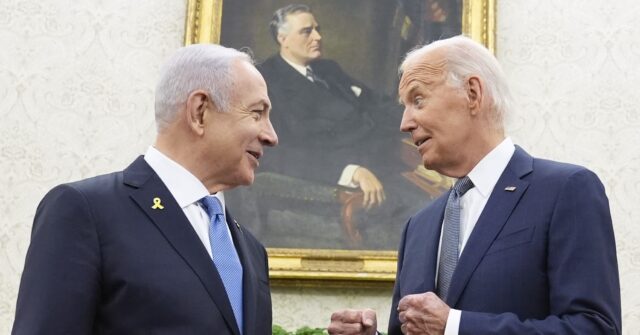Recent reports indicate that officials from the Biden-Harris administration are advocating for Israeli Prime Minister Benjamin Netanyahu to establish relationships with Ahmad al-Sharaa, a prominent Syrian rebel leader previously designated as a terrorist with a $10 million bounty on his head. The suggestion has raised skepticism within Netanyahu’s administration, as they remain unconvinced about al-Sharaa’s intentions and character. The Times of Israel has highlighted that American officials are recommending Israel engage with al-Sharaa, referring to him as a pragmatic leader aiming to foster strategic ties within the region. However, Israeli leaders are wary, suspecting that al-Sharaa might be manipulating international perceptions to solidify his position rather than genuinely seeking cooperation.
Netanyahu’s administration faces a complex geopolitical landscape, particularly in light of the recent changes in Syria following the fall of Bashar al-Assad’s regime. While Netanyahu expressed a degree of approval for Assad’s ousting, he simultaneously underscored the potential risks associated with what could emerge as a replacement. He has stated that Israel values having positive relationships with its regional neighbors but maintains a strong stance on responding to any threats with military force. This delicate balancing act reflects Israel’s broader security strategy, which aims to navigate the uncertainties of regional dynamics while safeguarding its national interests.
The situation is further complicated by the historical context surrounding the Golan Heights, a territory captured by Israel during the 1967 Six-Day War. The nomenclature associated with al-Sharaa, specifically the titles linked to the Golan, suggests an agenda that aligns with broader Syrian national aspirations, making any potential Israeli engagement fraught with implications. Israel has been proactive in neutralizing threats from Syria in the past, carrying out operations aimed at dismantling military capabilities, including chemical weapons, to prevent these resources from being used by rebel factions or exported to terrorist organizations. This history underscores a significant level of distrust towards Syrian actors, which informs Israel’s current reticence to engage with al-Sharaa directly.
The American strategy appears to prioritize cultivation of alliances with new leaders in the region who may be more amenable to cooperation with Israel. U.S. officials have pointed to the potential benefits of establishing ties with al-Sharaa, suggesting that such engagement could enhance Israel’s influence across a broader expanse of the Middle East. This approach is rooted in the idea that pragmatic dialogue with suitable regional leaders is essential in a post-Assad Syrian context and could lead to more stable long-term relationships.
Nonetheless, Israel’s leaders seem to be approaching this notion with caution, debating whether establishing communication paths with someone like al-Sharaa would yield tangible security benefits or ultimately expose Israel to increased vulnerabilities. As they ponder over external pressures from U.S. allies and internal security assessments, the Netanyahu administration must weigh the implications of U.S. suggestions against their own strategic military and diplomatic frameworks. Leaders like Netanyahu have positioned themselves as guardians of national security, thus showing reluctance to embrace partnerships that might risk Israeli safety and sovereignty.
In summary, the intricate dynamics at play between the Biden administration’s outreach to Ahmad al-Sharaa and Netanyahu’s cautious stand underline a pivotal moment in Israeli-Syrian relations. While the U.S. seeks to promote a vision of collaboration that envisions a more stable regional order, Israeli leaders remain anchored in their historical experiences and security imperatives. The balance between pragmatism and vigilance is crucial as Israel navigates this complex political terrain, ensuring that any alliances formed do not compromise its overarching goal of maintaining territorial security and sovereignty in a challenging environment.

